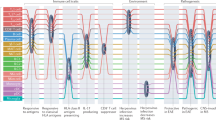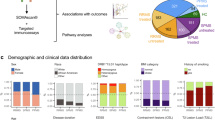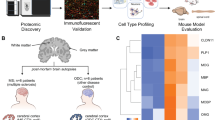Abstract
RECENT experiments by Carp et al.1,2 and Licursi et al.3 have excited hopes among investigators of multiple sclerosis (MS) and slow virus infections of the central nervous system that an experimental marker for these diseases has finally been found. Tissues from humans with MS or from scrapie mice were inoculated into normal mice, which showed a polymorphonuclear leukocyte (PMN) depression beginning within 1 to 3 d of the inoculation and persisting many months thereafter.
This is a preview of subscription content, access via your institution
Access options
Subscribe to this journal
Receive 51 print issues and online access
$199.00 per year
only $3.90 per issue
Buy this article
- Purchase on SpringerLink
- Instant access to the full article PDF.
USD 39.95
Prices may be subject to local taxes which are calculated during checkout
Similar content being viewed by others
References
Carp, R. I., Licursi, P. C., Merz, P. A., and Merz, G. S., J. exp. Med., 136, 618 (1972).
Carp, R. I., Merz, P. A., Licursi, P. C., and Merz, G. S., J. infect. Dis., 128, 256 (1973).
Licursi, P. C., Merz, P. A., Merz, G. S., and Carp, R. I., Infect. Immun., 6, 370 (1972).
Author information
Authors and Affiliations
Rights and permissions
About this article
Cite this article
BROWN, P., GAJDUSEK, D. No Mouse PMN Leukocyte Depression after Inoculation with Brain Tissue from Multiple Sclerosis or Spongiform Encephalopathies. Nature 247, 217–218 (1974). https://doi.org/10.1038/247217a0
Received:
Issue date:
DOI: https://doi.org/10.1038/247217a0
This article is cited by
-
The enhancing effect of multiple sclerosis brain homogenates on the active E rosette forming lymphocytes
Journal of Neurology (1978)
-
Mouse granulocyte precursors and multiple sclerosis
Nature (1974)



